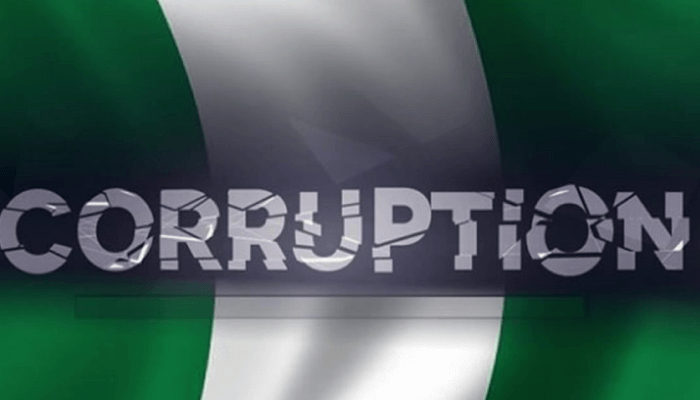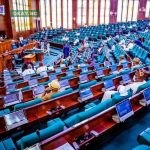Nigeria has eked out a minor victory in the global fight against corruption. The country’s score on the 2024 Corruption Perceptions Index (CPI) inched up to 26 out of 100, a slight improvement from the previous year’s score of 25. This marginal gain has lifted Nigeria 5 positions in the global rankings, moving it from 145th to 140th among 180 nations. These findings were released in the latest report by Transparency International (TI) and its Nigerian partner, the Civil Society Legislative Advocacy Centre (CISLAC).
While this modest improvement offers a glimmer of hope, it’s crucial to acknowledge that deep-rooted corruption continues to plague Nigeria. The fight against this pervasive issue remains a long and arduous journey.
Factors Contributing to the Slight Improvement
Several factors have contributed to this marginal progress. The intensification of anti-corruption prosecutions by agencies like the Economic and Financial Crimes Commission (EFCC) and the Independent Corrupt Practices and Other Related Offences Commission (ICPC) has played a significant role. High-profile cases, such as the recovery of $52.88 million from former oil minister Diezani Alison-Madueke and ongoing efforts to retrieve the Abacha loot, have demonstrated a commitment to combating corruption at the highest levels.
However, ensuring the independence of these investigations is paramount. Political interference can undermine the integrity of these efforts and jeopardise any meaningful progress.
Read Also: EFCC Boss: Procurement Fraud Fuels Nigeria’s Corruption Woes
Furthermore, the tireless efforts of civil society organisations and investigative journalists have been instrumental in exposing corruption and holding the government accountable. Despite facing government pushback and intimidation, these groups remain steadfast in their pursuit of a more just and transparent society.
The expansion of e-governance tools in areas like tax collection and procurement has also shown some promise in minimising opportunities for corruption. However, these systems require continuous improvement and robust oversight to ensure their effectiveness.
Comparing Nigeria to Other African Countries
Nigeria still lags behind a number of African countries in the battle against corruption, despite making modest strides in 2024. With a score of 72, Seychelles continues to be the top-ranked African nation, followed by Namibia (59), Mauritius (56), Rwanda (57), Botswana (57), and Cabo Verde (62). These nations’ higher rankings can be attributed to the implementation of more robust anti-corruption frameworks, accountability systems, and governance reforms.
Persistent Challenges
Despite these positive developments, Nigeria continues to grapple with a myriad of corruption-related challenges.
“Nigeria has made strides in reclaiming stolen public funds, including the $52.88 million recovered from former oil minister Diezani Alison-Madueke, along with continued efforts to retrieve the Abacha loot. Despite some progress, Nigeria continues to struggle with widespread corruption across various sectors”, analysts stated.
- Judicial Corruption: This remains a significant obstacle. Bribery, conflicting judgements, and a lack of accountability within the judiciary undermine the rule of law and erode public trust. A United Nations report from March 2024 revealed a disturbing statistic: 20% of Nigerians who interacted with the judiciary reported being asked to pay a bribe.
- State Capture and Nepotism: Government appointments are often influenced by personal or ethnic affiliations rather than merit, leading to cronyism and undermining good governance.
- Whistleblower Suppression: The absence of a strong Whistleblower Protection Law discourages citizens from reporting corrupt practices, creating a climate of fear and impunity.
- Erosion of Press Freedom: Journalists, activists, and whistleblowers who expose corruption face increasing government suppression, including arrests and intimidation.
- Oil Theft and Subsidy Fraud: Nigeria, Africa’s largest oil producer, suffers significant revenue losses due to rampant oil theft and fuel subsidy fraud.
- Power Sector Crisis: Corruption continues to hinder progress in the power sector. Despite substantial government investments, the national grid remains unstable, leaving millions of Nigerians without reliable electricity.
- Tax Injustice: While ordinary citizens and small businesses bear the brunt of taxation, large corporations and the elite often enjoy questionable tax waivers, exacerbating economic inequality.
- Insecurity: Corruption within the security sector fuels instability. Wasteful expenditures and mismanagement within security agencies weaken efforts to address insecurity, while politicians increasingly misuse security forces for personal gain.
Recommendations for Combating Corruption
To effectively tackle corruption, CISLAC/TI-Nigeria has outlined several key recommendations:
- Strengthening Anti-Corruption Agencies: Ensuring full independence and adequate funding for agencies like the EFCC, ICPC, and NFIU is crucial.
- Swift and Transparent Prosecutions: Expediting the prosecution of corruption cases and ensuring that these actions are free from political interference.
- Judicial Reform: Strengthening judicial integrity through measures such as implementing whistleblower protections, enforcing asset disclosure requirements, and establishing robust conflict-of-interest regulations.
- Promoting Transparency and Accountability: Fully digitising government contracts, budgets, and procurement processes to enhance public access and accountability.
- Addressing Revenue Losses: Stricter tracking of oil production and the elimination of selective tax waivers are essential to prevent further revenue losses.
- Protecting Whistleblowers: Enacting strong whistleblower protection laws to encourage citizens to report corrupt practices without fear of retaliation.
- Improving Asset Management: Creating a public database for recovered assets to ensure transparency and accountability in their utilisation.
The fight against corruption requires sustained effort and a multi-pronged approach. By addressing these challenges head-on, Nigeria can pave the way for a more just, equitable, and prosperous future for all its citizens.













